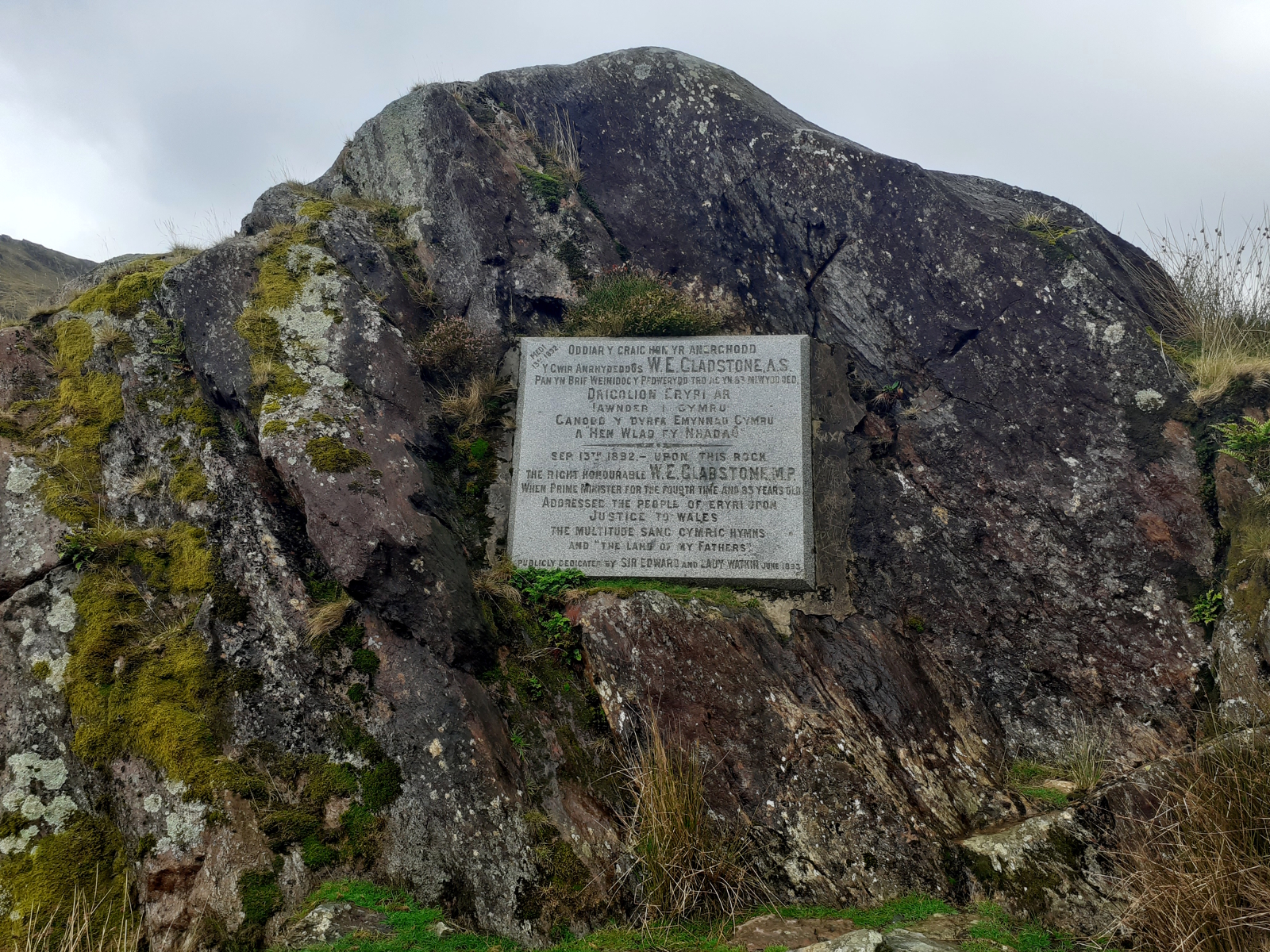The Eryri National Park
... the first and largest National Park in Wales
The Eryri National Park
Eryri (Snowdonia) National Park was established in 1951 as the first National Park in Wales (and the third in Britain, following the Peak District and the Lake District). The Eryri (Snowdonia)
National Park covers over 800 square miles making it Wales’ largest National Park.
The mountainous landscape is rich in natural beauty, wildlife, culture, history and heritage, including the Welsh language which, for many, is part of every day life in the area.
The Watkin Path
... Britain's first official public footpath
The Watkin Path
Named after Sir Edward Watkin MP, the Watkin Path was the first designated footpath in Britain.
Upon retiring, Sir Edward Watkin moved to the area and was keen to build a path (which he financed) for visitors to follow from where the old quarry track ended just above Nantgwynant to the summit of Yr Wyddfa (Snowdon).
The Watkin Path was opened by the then Prime Minister, William Gladstone, in 1892.
Gladstone spoke to over 2,000 people from a large rock next to the path (choirs also sang at the event) – this rock is now known as The Gladstone Rock.
There is a long series of waterfalls next to the path, which, after heavy rain can be particularly dramatic.
Also visible from the path are the remains of The South Snowdon Slate Quarry. The slate quarry dates back to the 1840s, but the main period of development was between 1860 and 1870 and it was at this time that the tramway, that remains for which can still clearly be seen, was created. There are various old ruined quarry buildings on the site.
Industrial heritage
... from victorian mines and stream trains to early hydro-electric power!
More Local history
The Nantgwynant valley is steeped in history and legend. As well as providing details of walks, the books 'Walks in and around Nantgeynant' and 'More walks in and around Nantgwynant' both provide the walker with snippets of information about the history and heritage, myths and legends that relate the the area each walk asses through. It is hoped that these will provide additional interest to a walk and help walkers discover more about the local area. Victorian mines and quary workings, steam railways, medieval castles, princes, dragons and a early hydro-electric power station all form part of the history and heritage of the area and feature in some of the walks described in the books. The following links may also be of interest to visitors to the area.
Industrial Heritage
- Sygun Copper Mine
Explore this Victorian copper mine with audio presentation, winding tunnels and large, colorful chambers, magnificent stalactite / stalagmite formations and copper ore veins which contain traces of gold, silver and other precious metals. - Welsh Highland Railway
Information and timetables for one of the most beautiful geritage railways in Wales. - Cwm Dyli Power Station
A landmark on one of the walks from 'More walks in and aroung Nantgwynant' Cwm Dyli may be Britain's oldest power station, and is believed to be one of the oldest grid-connected hydro-electric stations in the world. The Old Copper Mine by Afon Merch
The Old Copper Mine by Afon Merch dates back to 1806. The copper ore was not smelted on site, but mostly sent to Swansea, initially by horse and cart to Porthmadog and then, from there, by boat. The mine closed around 1867 due the depletion of copper deposit.- Cwm Bychan Mine Workings and Ropeway
The remains of the old aerial ropeway pylons dating from the 1920s can be seen in the Cwm Bychan valley. These were used to transport extract from the mine to the processing plant at Nantmor (a distance of about 1.4 kilometres). The cable that carried the buckets was made of steel wrapped around a hemp rope core. The main area of the old mine is just to the west of the top station of the ropeway.
Myths and legends
... dragons, princes and the famous dog, Gelert!
Myths, legends and castles
- The legend of Gelert
The story of the medieval Welsh Prince Llewelyn the Great, his dog, Gelert, and how the village of Beddgelert got its name. - The legend of the dragons of Dinas Emrys
The battle between the rad and the white dragons and the hill fort of Prince Llewelyn the Last. - Dolwyddelan Castle
Featured in one of the walks from Nantgwynant, this castle is actually in a neighbouring valley, but provides an interesting visit almost mid-way around the route.
Ancient history
... castles, hill forts and battles
